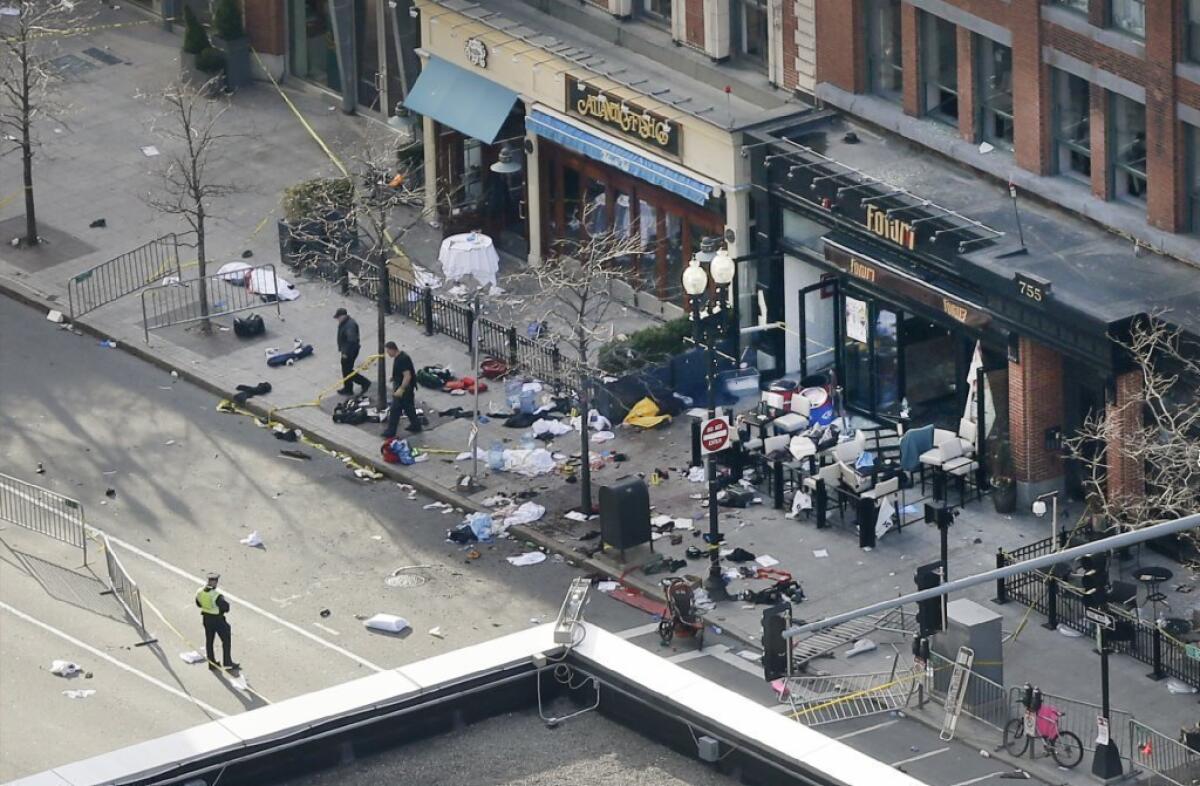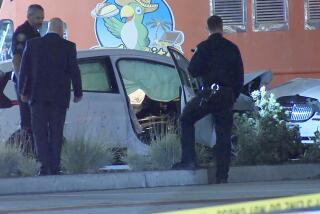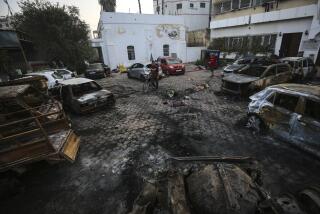After Boston explosions, people rush to Twitter for breaking news

- Share via
SAN FRANCISCO -- In an age of near instant communication, Twitter again became the world’s town square as traffic to the service spiked minutes after the deadly Boston Marathon explosions.
People rushed to Twitter for real-time information on fatalities and injuries. It was the first to air the news of the explosions at the finish line (10 minutes ahead of cable news) and to break the news of multiple explosions and mass casualties as users posted firsthand accounts and photographs.
Foursquare founder and Chief Executive Dennis Crowley, who was running the marathon to raise money for Camp Interactive, a program to expose underprivileged youth to technology, turned to Twitter to let friends and family know he was OK. (He also used it to ask journalists to “leave us alone right now.”)
PHOTOS: The top smartphones of 2013
Twitter, which lets users tap out 140-character status updates, has transformed how breaking news events are recorded and covered whether in on-the-ground reports such as a Pakistani man live tweeting the deadly raid on Osama bin Laden’s compound in Abbottabad) or in on-the-plane reports from the Hudson River plane crash.
Yet Twitter users are still working out how to respond in a crisis. Many helped spread the word of ways to connect with loved ones including a new people-finder tool from Google. They also tried to police each other by cautioning against posting rumors and speculation.
New York Times’ Nicholas Kristof came under fire for politicizing a national tragedy when he tweeted: “explosion is a reminder that ATF needs a director. Shame on Senate Republicans for blocking apptment.” He later deleted the tweet and apologized.
Some questioned whether technology news blogs were posting updates on the explosions just for page views. They also objected to the posting of graphic photographs without any thoughtful examination of what happened.
Others complained about “concern trolls” (people who post on Twitter pretending to be concerned who really just want to hijack the conversation). And Twitter users responded angrily to a fake Boston Marathon account (Twitter quickly suspended twitter.com/_BostonMarathon)
Brands were also strongly encouraged to pull lighthearted promotions from Twitter. “Goes without saying, but if you’re a brand or a publicist with a frivolous scheduled tweet, now’d be the time to cancel that,” wrote Matt Lindner.
ALSO:
How to communicate with those in Boston
Boston websites down, officials cut cellphone service
Google to alter search results under pact with European regulators, report says
More to Read
Inside the business of entertainment
The Wide Shot brings you news, analysis and insights on everything from streaming wars to production — and what it all means for the future.
You may occasionally receive promotional content from the Los Angeles Times.










